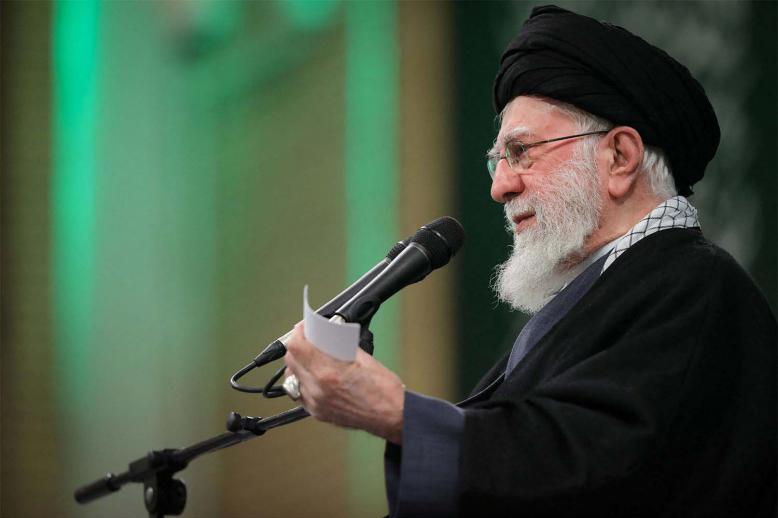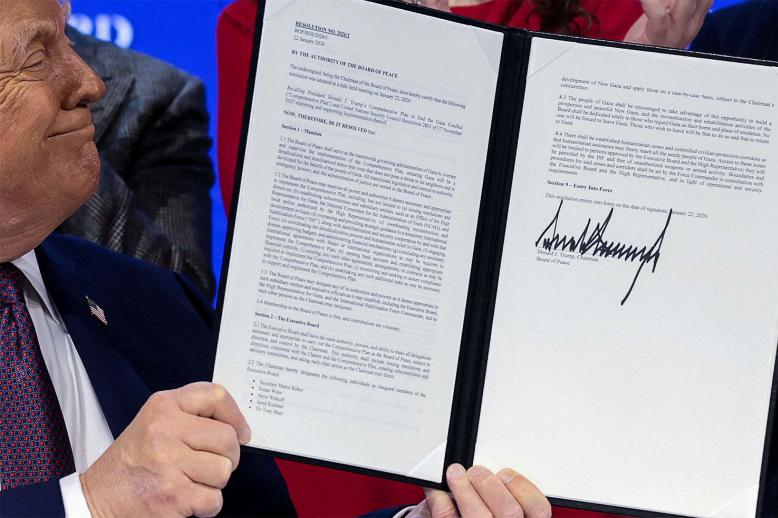Killing of Soleimani escalates tensions in Middle East, rattles Tehran’s proxy strategy
ISTANBUL — The death of Iran’s top military strategist and, arguably, its second-most powerful man in a US drone attack raised tensions in the Middle East and rattled Tehran’s proxy strategy as well as its approach towards Washington’s policies in the region.
Iranian Major-General Qassem Soleimani, head of the elite al-Quds Force, was killed early January 3 in a US drone strike on his convoy near Baghdad International Airport. Top Iraqi militia commander Abu Mahdi al-Muhandis was also killed. Fears of a military confrontation between Iran and the United States drove oil prices up nearly $3 a barrel.
Soleimani, 62, was the brains behind an aggressive power drive by Iran that expanded Tehran’s interventions in Iraq, Syria and Lebanon and sharpened conflicts with US allies, including Saudi Arabia and the United Arab Emirates but also Israel.
Al-Quds Force was instrumental in saving Syrian President Bashar Assad from defeat in the first years of the Syrian civil war and cementing Iran’s influence in Iraq by taking part in the campaign to drive back the Islamic State but also directing attacks against US interests in the region.
US President Donald Trump said Soleimani was killed “to stop a war,” not start one. The Iranian general had been plotting “imminent and sinister” attacks. At the Pentagon, US Army General Mark Milley, chairman of the Joint Chiefs of Staff, said the United States had “compelling, clear, unambiguous intelligence” of Soleimani plotting violent acts. The US military is sending nearly 3,000 additional troops to Kuwait to defend American interests against potential Iranian revenge attacks.
Trump also proposed negotiations with Tehran, writing on Twitter that the time was right for Iran to agree to talks with his administration. “Iran never won a war, but never lost a negotiation!” he said.
Tehran vowed retaliation, with Iranian Supreme Leader Ayatollah Ali Khamenei threatening “severe revenge.” Khamenei called for three days of national mourning and appointed Soleimani’s deputy, Brigadier-General Esmail Qaani, to replace him as al-Quds Force commander.
Analysts said the Iranian regime, whose political encroachment was rejected by demonstrators in Iraq and Lebanon, had its back to the wall.
“This is nothing short of a declaration of war to a cornered country that has increasingly less to lose,” Ali Vaez, the director of the Iran Programme at the International Crisis Group, wrote on Twitter. “The risks of miscalculation are at an all-time high.”
“The US might have to counterattack depending on what Iran does, which could trigger an escalatory cycle that could easily spiral out of control,” he said.
Iraq’s Popular Mobilisation Forces umbrella grouping of mostly Iran-backed paramilitary groups said January 3 that air strikes near Camp Taji had killed six people and critically wounded three but the US-led coalition fighting the Islamic State said it did not launch the attacks.
Soleimani’s death is a serious setback for Iran’s strategy to use proxies and the principle of “plausible deniability” in its confrontation with the United States over Tehran’s nuclear programme and aggressive regional stance. That strategy has limited Iranian losses and allowed Tehran to keep negotiation channels open with Japan, Russia and Europe.
Deniability may no longer be an option for Iran, however. The death of a US military contractor in a missile attack by Iran-backed militiamen in northern Iraq triggered US air strikes, which led to violent protests at the US Embassy in Baghdad. The Pentagon said Soleimani “approved” the protests. Conventional warfare is likely to be more costly for Iran now that the deniability that comes with acts of sabotage and terrorism is no more an option.
Hassan Hassan, director of the Non-State Actors Programme, Centre for Global Policy in Washington, said Iran had become “too comfortable” in recent months because the United States did not respond decisively to Iranian provocations. As an example, Soleimani “moved around feeling invincible,” he wrote on Twitter.
“Iran has overplayed its hand,” Hassan added.
Thomas Seibert is an Arab Weekly contributor in Istanbul.
Copyright ©2020 The Arab Weekly







